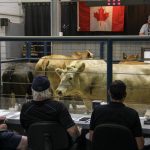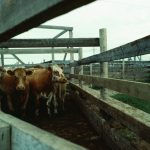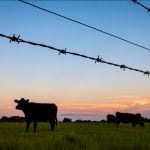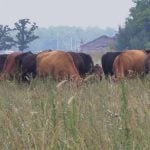Higher U.S. tariffs on Brazil are expected to reshape global beef trade flows, sparking increased shipments to the U.S. from countries like Mexico and Australia while Brazil seeks alternative markets, analysts said on Wednesday.



Managers and owners of Manitoba’s livestock auction marts say they’re adapting to changing times and, in some cases, seeing growing sales despite a long-dwindling cattle herd


Human screwworm case was Maryland resident who recovered, state health department says


Lean hog futures rise

USDA criticized by cattle producers for failing to take timely measures to prevent screwworm from entering the U.S.

Manitoba beef farmer keeps his grazing plan adaptable to weather another drought year in the Interlake


Canada changed its BSE surveillance after lower global incidence of ‘mad cow disease’ led to international standards shift